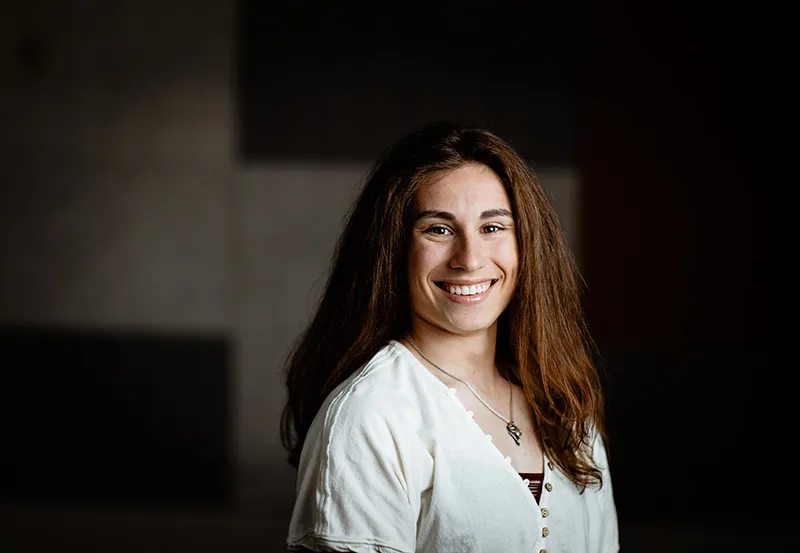
Alumni Spotlight: Nikita Rubocki '22, Computer Science
Tell us more about what you do as a data scientist for R1.
As a data scientist, I work with datasets and machine learning models. Most of my job is the former — data requires a lot of gathering, cleaning and formatting so it's usable for training a model. What people most associate with data science is modeling, which involves choosing the right machine learning model for the data problem you are trying to solve. Together, my job consists of taking datasets and applying the right models to find trends and discover patterns to solve a problem.
My company works in revenue cycle management, which is basically the fancy business name for the billing process you experience at hospitals. My work applies to the billing happening between hospitals and insurance, which is known as medical coding — the process of taking unstructured doctor's notes and turning them into codes insurance can understand and bill. The coding process is manual and error-prone, so we are applying machine learning to help the people doing this work manage accounts more efficiently.
What skills or experiences from your education have been most valuable?
I firmly believe the way we are taught software in the OSU-Cascades computer science program is heads and shoulders above others. You can learn to code from almost anywhere these days, but learning the philosophy of good software design, how to tackle and create complex systems, and the art of running a software business are topics few people bother with. Putting these topics foremost at OSU-Cascades was incredibly beneficial to growing what I call "tech soft skills," which are the vital skills you cannot glean from a coding camp or YouTube tutorial. These skills helped me get and excel in the two jobs I have held post-graduation. Relatedly, the CS program's emphasis on developing your normal soft skills and networks was also crucial. The pro-development portion of your grade in any CS class is much more than an annoying requirement — done right, those "extra" developments will turn into job opportunities and provide crucial connections. I can probably contribute at least one-third of my success to taking those points seriously and attending/running workshops, networking events, etc.
What do you enjoy most about your job?
At my current job, I enjoy the puzzles of datasets and figuring out the best way to extract meaningful information. Most people don't realize data is incredibly complicated and rarely useful in its raw form — a lot of processing and clever thinking goes into turning raw data into useful data points. Once you accomplish that, the act of configuring the right model is a whole art form in itself. Going through all that work then putting your data into a model to solve a complicated problem is a challenging and rewarding endeavor!
How are you making a difference?
AI news currently fills the world with both fear and optimism. I have been learning about machine learning and artificial intelligence for some time (my Honors thesis was even related to data science), and I find it fascinating to watch this wave of interest overtake public interest with everything from mundane memes to end-of-the-world events. Working in healthcare, I hope to bring some positive AI use cases into the world, especially in an industry in dire need of modernization. Trying to help hospitals, and therefore the people using them, work more efficiently feels like a good difference to make in the world. Other than my job, I am a big believer in making CS more accessible to everyone. I am part of multiple women/people in STEM groups working on that goal, and I strive in my own life to make progress by learning from those before me and embodying the type of person I wish I had seen more of when I started to discover programming in high school.
Any advice for current students?
Explore outside the confines of your degree and your college! All opportunities come through knowing other people — not a single thing anyone has ever done was in complete isolation. So go out there and make those connections — it's good for your health, your mental state, and your future!